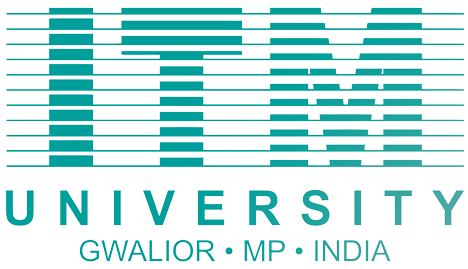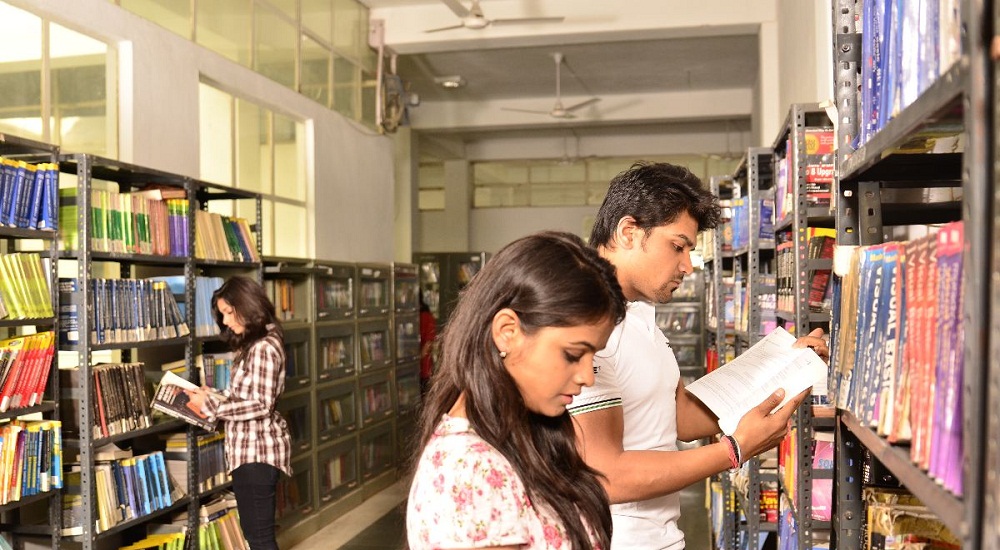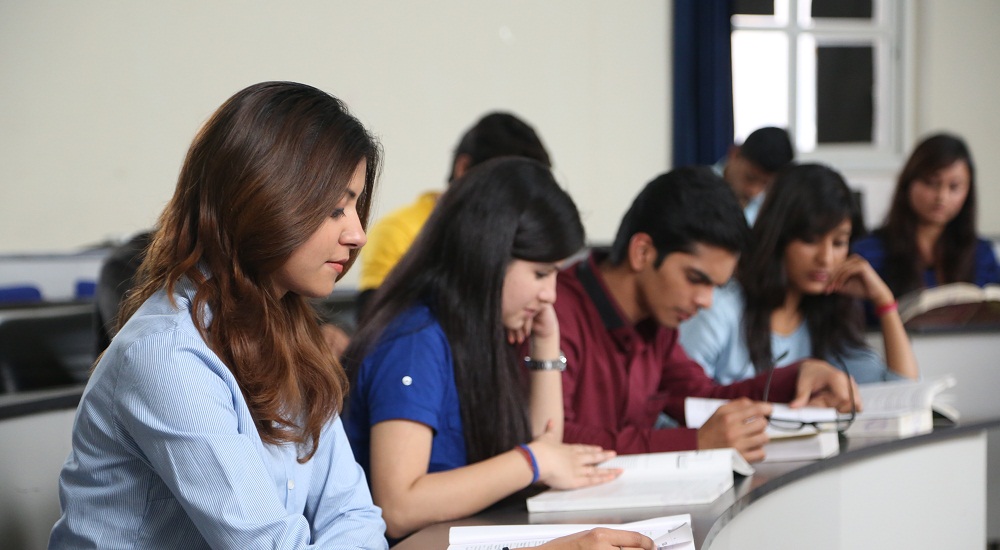Electronics and Communication Engineering
The department is established in the year 2011 for imparting state-of-the-art knowledge in Electronics & Communication Engineering and allied areas. The department is currently the largest multidisciplinary department and it covers practically all sub-disciplines in Electronics and Communication Engineering including Communication Systems, Wireless Communication, Speech, and Audio Processing, Control Systems, Wireless Networks, Semiconductor Technology VLSI Design, Embedded Systems, Microwave Design & Testing, Wireless Sensor Networks, Internet of Things (IoT), Machine Learning, and Vehicular Ad-hoc Networks (VANET).
Uniqueness of the Department
- Highly qualified and experienced faculty and staff.
- Faculty with specializations in Communication Systems, Wireless Communication & Networks, VLSI Design, Embedded Systems, Microwave Engineering, Electronic Devices, Analog & Digital Communication, Measurement and Control, Wireless Sensor Network, Cognitive Radio Networks, Internet of Things (IOT), Vehicular Ad-hoc Networks and Optical Communication etc.
- Curriculum is designed in collaboration with industries which offers optimum placement.
- Activity based continuous assessment (ABCA) model is adopted through which students are involved in various technical activities such as Project based leaning (PBL), poster presentations, seminar, case study, open book test, quiz, research paper and article writing.
- The department is also provides innumerable opportunities to students to equip themselves with practical skills by working on real time based mini projects, develop communication skills, explore internship opportunities in industry and participate in various National and International design contests.
- The Department also offers program elective courses that are designed to bridge the gap between industry requirements and academia. Students are required to select elective courses according to their choice and inclination. It helps students to gain a deeper knowledge and skills in the selected areas.
- For hands on experience and innovation, extra curriculum activities such as Seminars, Conferences, Workshops, & Expert Lectures are conducted frequently.
- Emphasis on Research and Innovation. Involvement of students in R & D centres of department.
- Publications in International, National Journals and Conferences of repute.
- Well-equipped Laboratories.
- The Department also offers specialization course of IoT & Sensors which fulfils the need of information & communication technologies in the fields like smart industries, smart healthcare, digital transformation, smart city etc.
- Industry Practice –A mandatory component that enables students to work in the industry on real projects under direct guidance of industry professional. This Industry-linked academic program enables students to graduate with the skills, knowledge and hands-on experience sought by employers worldwide. It not only helps in identifying right career opportunities but also equips them with the ability to give right direction to their careers.
The courses of each program are designed in consultation and collaboration of experts from industries and academia.
- B. Tech. ECE
- M. Tech. VLSI Design
- M. Tech. Communication Systems
- Ph.D.
Career Options & Placement opportunities
Electronics & Communication Engineering offers scope in the field of Mobile & Cellular Communication, Wireless Communication & Networks, VLSI Technology & Design, Digital Signal Processing, Television Broadcasting, Embedded Systems, Microwave Engineering, Optical Fibre Communication, Nanotechnology, Satellite Communication, Space Research, Sensor Technology and IOT. Beside these, students also get a chance to be placed in software companies because of the versatility of Electronics & Communication Engineering students.
Major Recruiters: Samsung, LG, Videocon, DRDO, ISRO, ST Microelectronics, Bharat Electronics Limited, BSNL, Idea, Airtel, Vodafone, Nokia, Honeywell, Havells, Spectross, Infosys, Wipro, HCL, Cognizant, Cisco, Azure, Accenture, Smartech Electronics, and in abroad also.
- Well furnished & spacious classrooms with multimedia LCD projectors, and smart class rooms.
- Well equipped library with 2564 titles and 22000 volumes.
- The department has well equipped laboratories to efficiently run all the courses. The department has following Laboratories:
- Basic Electronics Laboratory
- Electronics Workshop
- Electronic Devices and Circuits Laboratory
- VLSI Design Laboratory
- Samiconductor Laboratory
- Digital Electronics Laboratory
- Networks Analysis & Synthesis Laboratory
- Instrumentation & Measurement Laboratory
- Analog & Digital Communication Laboratory
- Microprocessor & Microcontroller Laboratory
- Digital Signal Processing Laboratory
- Control Systems Laboratory
- PCB Design & Project Laboratory
- Microwave Engineering & Antenna Laboratory
- Optical Communication Laboratory
- Advanced Communication & Networks Laboratory
- VLSI Design Laboratory
- IOT & Sensors Laboratory
- Specialized software lab includes the licensed software such as MATLAB, NetSim V9.0 and Open Source Software such Multisim, Arduino IDE, Proteus Software, Fritzing Software for IOT Circuit Design and Simulation, CISCO Packet Tracer, Keil MicroVision.
- IoT Builder kit
Research Areas
- Digital Communication
- Wireless Communication & Networks
- Vehicular Technology & Communication
- VLSI Design
- Microwave Engineering
- Wireless Sensor Networks
- Internet of Things (IoT)
- Optical Communication
- Microelectronics and Nanotechnology
Certificate Courses run by the department
- MATLAB Programming
- Network & Traffic Simulator
- Programming of Arduino, Raspberry pi Devices
- Antenna Design
- Embedded Systems
- VHDL and Verilog Programming
Pedagogy and Learning Ambience:
The department’s pedagogy aims at preparing students to face real-world challenges using Project-Based Learning (PBL), interactive and participative processes and constant mentoring. Lots of opportunities are provided to students to supplement the conventional technical education using the following practices:
- Industry Visits, Workshops and Trainings
- Projects and Quiz Competitions
- Students Seminars and Debates
- Interviews and Group Discussions
- Innovation and Creativity Clubs
- Personality Development Programs
Students and faculty are also benefited from the following sources:
- NPTEL Courses
- SWAYAM Courses
- EDX certification courses
- Coursera Certification Courses
- IIT Spoken Tutorial
- E-Journals-IEEE/EBSCO/ASCE/ASME/ASTM/J-GATE/Emerald





